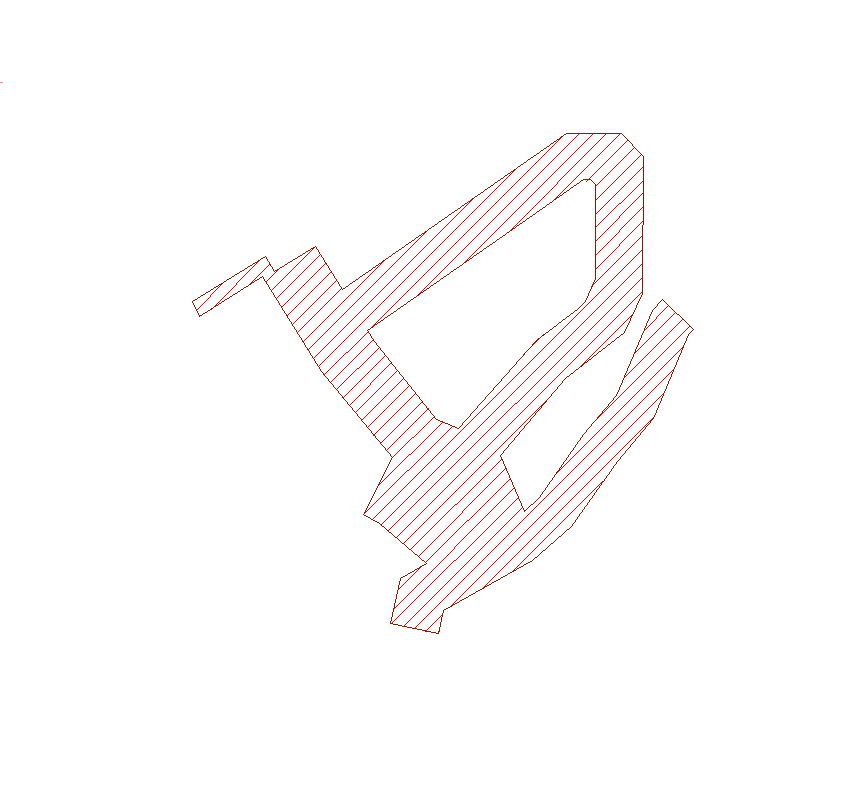Generate Surface of 3d-Faces
Hi,
I want to create a surface, consisting of 3D Faces covering the red hatch shown in the picture. What would be the quickest/most simple way to do this? In the first step, the 3d-Faces should be even (z-Value = 0).

Comments
-
Enable Boundary Detection
Hover over the hatched area - use Quad to create a region
Then CONVTOSURFACE0 -
Interesting. That gives a Planesurface, with 1 face. I would have thought the OP was talking about TIN surface like for civil engineering.
From the help, you can pick:
2D and 3D solids
Regions
Zero-width open polylines with thickness
Arcs and lines and arcs with thickness
Meshes and planar 3D faces
So this kind of surface is more 3d model-ish, than a civil surface. I wonder what the planar surface entity is in autocad.
Never used them before.BTW, if you look up the .net port of the Triangle program, you can build that into a nice TIN triangulator plug-in for bcad.
Its what I use and handles millions of points/breakline segs per second.0 -
Hi James,
The Planesurface is composed from triangles like any Surface, but you don't see them !
The last step to get your 3Dfaces is to export the Surface into a Collada .dae file and import this file again into
a mesh (cyan triangulated) and finally explode this mesh and get the 3Dfaces (yellow) you want !
I hope this helps 0
0 -
Why not use convtomesh?
0 -
@Konstantin Sakellaris
Wow, now that is a workflow! I'm thinking something utilizing the new tin surface would be more direct but I have not used it much.0 -
@James Maeding said:
The quickest workflow seems to be the one mentioned by CADMebel above...!
Create REGION(magenta) -----> create MESH using CONVTOMESH command (cyan) -------> explode to 3D Faces ( yellow) (fig.1 below)
If you use the TIN command you CAN'T exclude areas within a Boundary like in your case and you will have to do it manually !
You will not be able to select REGIONS using the TIN command and you need more steps to convert to 3D Face
Create TIN using the TIN command----> explode to BLOCK -----> explode to POLYFACE MESH -------> explode to 3D Faces (fig.2 below)
Also using the workflow over COLLADA .dae file you can exchange information with many non DWG software etc....
Enjoy !
 0
0

